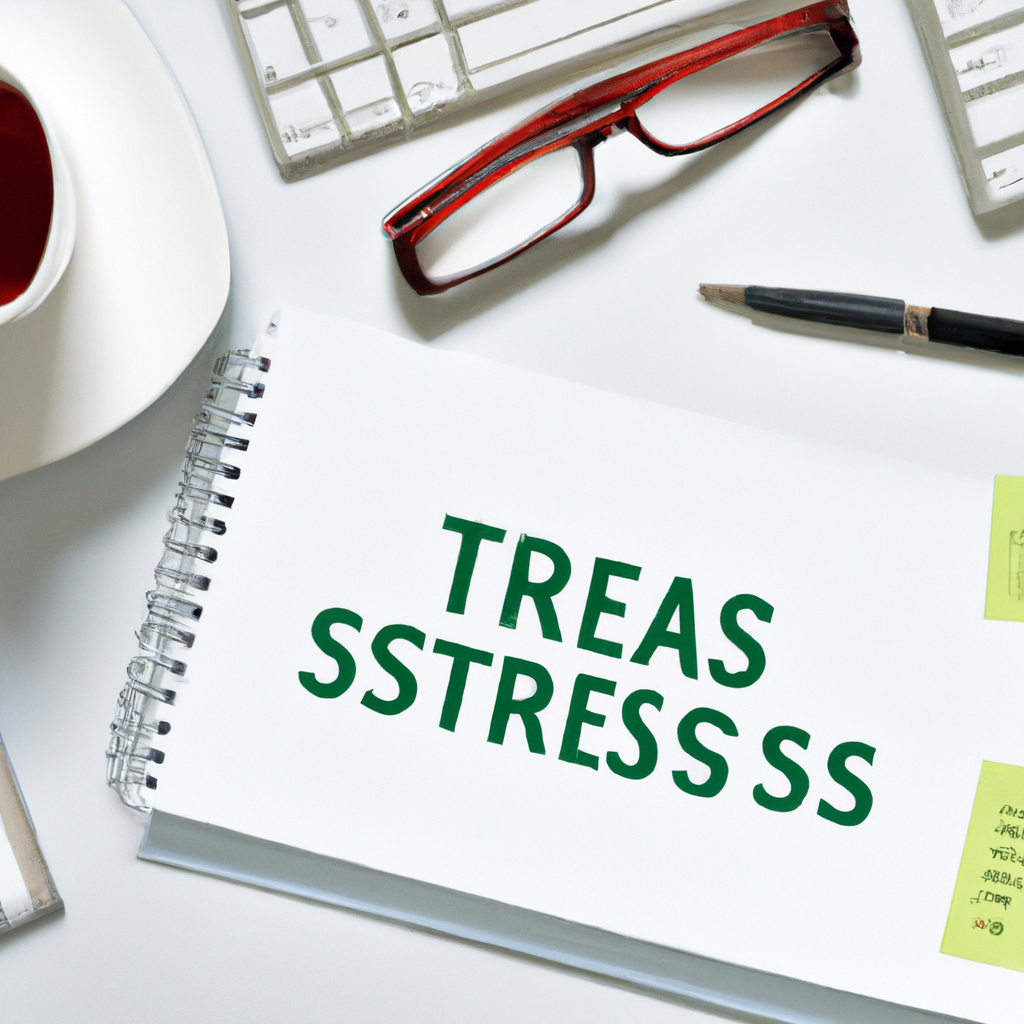Are you feeling overwhelmed and worn out with the stress and demands of the workplace? If so, you aren’t alone. With the hustle and bustle of the daily grind, maintaining our mental health has become increasingly difficult; however, it is essential for overall wellbeing. Through effective stress reduction strategies, it’s possible to manage your mental health at work. Let’s explore some strategies that can help you remain calm and centered throughout your workday.
1. Understanding Stress in the Workplace
Stress in the workplace is something that’s unfortunately all too common, but acknowledging it and understanding how to manage it is key for achieving success. Here are some practical tips for understanding and managing stress:
- Analyze the source of stress: Figure out what is causing your stress. Is it the workload? Is it the lack of communication in the workplace? Do you feel overwhelmed with unexpected tasks? Once you have identified the source of stress, you can come up with solutions for solving the problem.
- Set clear expectations: When there is confusion over expectations and responsibilities, the chances of stress increase. Share your responsibilities with colleagues and ask for clear instructions when necessary.
- Take regular breaks: If you have too many tasks at hand, try to prioritize and switch between tasks. Taking breaks can clear your mind and make work more enjoyable.
- Watch your diet: Although it is overlooked, what you eat plays a great role in how you feel. Eating healthily can help you stay alert and focused and reduce fatigue.
The impact of stress in the workplace can be minimized if we identify and address the cause. Maintaining a clear communication between colleagues is very important for this. Having a healthy lifestyle is also worth considering because it can reduce the physical manifestations of stress.
Finally, don’t be afraid to talk to your colleagues or management if things are feeling overwhelming. A team effort makes it much easier to handle stress in the workplace and don’t be afraid to offer your help if needed.

2. Effective Stress Reduction Strategies
Meditation
Meditation has been widely recognized as one of the most effective ways to reduce stress. It is a technique that has been practiced for centuries and involves focusing one’s attention on a single object or thought in order to achieve a relaxed mental state. Through regular practice, it can help to center and re-balance the mind, allowing for a clearer head and a more positive outlook. Research even suggests that it may help to alleviate physical symptoms associated with stress, such as headaches and chest pain.
Yoga
Yoga combines physical postures, breathing exercises, and meditation to help improve mental and physical wellbeing. It encourages the practitioner to focus their attention on the present, as they move from pose to pose and take deep, intentional breaths. A regular yoga practice can help to reduce stress levels, as well as boost immune system functioning, enhance focus and clarity, and increase overall relaxation.
Mindful Walks
A mindful walk can be an excellent way to reduce stress. It involves taking a walk in nature and paying close attention to each of your senses. You can focus on the sights, sounds, smells, and even physical sensations that occur during your walk. Paying attention to these details will help to ground you in the present and refocus your thoughts away from any negative and/or stressful situations.
Deep Breathing
Deep breathing is a simple yet powerful technique to quickly reduce tension and stress. It involves taking slow, deep breaths and counting them as you go. By doing this, it helps to bring the breath all the way down into your chest, diaphragm, and belly and forces the body and mind to relax. Deep breathing is an excellent technique that can be done any time of day, providing fast and effective relief.
Progressive Muscle Relaxation
Progressive Muscle Relaxation is a technique used to reduce stress and improve overall wellbeing. It is done by systematically tensing and relaxing each of the major muscle groups in the body. This helps to release any built-up tension and allows for a more balanced and relaxed state of being. Practice this technique regularly and you’ll be on your way to improved stress management.
Journaling
Journaling is a great way to both reduce stress and gain clarity on your thoughts and emotions. Take some time each day to sit down and write out your thoughts and feelings. This can help to promote inner-peace and mindfulness, while helping to clear out any emotional and mental baggage that may have been building up. It can also provide a great opportunity for self-reflection, enabling you to gain valuable insight into yourself.
3. Achieving Lasting Peace of Mind at Work
Sometimes, achieving peace of mind at work can be a challenge. Remaining calm and in control of your emotions and reactions can be difficult in the face of a variety of stressful scenarios. But don’t worry – is totally doable! Here are a few tips for reaching this goal:
- Get organized. Clear your work space, organize your tasks, and break large tasks into small, manageable parts. This will help keep your workload and stress levels manageable.
- Focus on the present. Calm your mind by focusing on the present and the task at hand. Move away from worrying about the future and the past.
- Take frequent breaks. Taking breaks can help you clear your head, recenter yourself, and return to work energized and with a better mindset.
- Exercise. Use fitness or yoga as part of your daily routine to reduce stress and help build mental resilience over the long-term.
If you’re still feeling stressed at work, think about ways you can reduce stress from the source. Now is the perfect time to reassess things like:
- Your to-do list. Are you taking on too much? It may be time to evaluate what tasks are necessary and which ones can be eliminated or delegated.
- Time management. Orientating your day around specific tasks can help you achieve more, become more organized, and reduce stress.
- Workplace relationships. Investing in positive relationships with colleagues is essential for reducing stress. Nurturing relationships can be a major helper in .
Ensuring that your environment is comfortable and supportive can help you create a sense of balance and calm. Keep some snacks, refreshing drinks, or reading material in your office space to provide a relaxing atmosphere. Regularly take advantage of workplace amenities such as those offered in break rooms, staff lounges, offices, or recreational centers. Finally, and most importantly, be sure to take care of your mental and physical health. Taking breaks, engaging in creative activities, listening to calming music, and getting enough sleep – these are all effective methods for .
4. The Mental Health Benefits of the Right Approach
It is no secret that maintaining positive mental health is an important part of living a healthy and balanced life. Taking the right approach when it comes to mental health can have a tremendous benefit for our overall well-being and emotional well-being. Here are four of the mental health benefits that come along with taking the right approach.
1. Improved Self-Esteem
The right approach to mental health allows us to be more accepting of ourselves and our shortcomings. Taking more of an optimistic outlook on life helps to combat any feelings of low self-worth and reinforces a sense of self-confidence. Making small improvements to our lives, such as getting more education or starting an exercise program, is a great way to achieve an increased sense of self-worth.
2. Better Communication Skills
When people take the right approach when it comes to their mental health, they develop better communication skills. They become more comfortable expressing themselves in an honest and open manner. This opens the door for meaningful conversations and allows people to connect with others on a real and authentic level.
3. Increased Mental Awareness
The right approach to mental health requires us to be aware of our feelings and emotions. This helps us to identify potential problems and take steps to address them. We also become more aware of our triggers and how to manage them. Becoming more aware helps us take better care of ourselves and supports positive mental health.
4. Emotional Intelligence
Taking the right approach to mental health helps us develop our emotional intelligence. This includes becoming more aware of how we feel and how our feelings affect our attitude and behavior. Becoming more emotionally intelligent allows us to better understand and manage our emotions and increases our ability to empathize with others.
These are just a few of . With an improved sense of self-esteem, better communication skills, increased mental awareness, and emotional intelligence, there is no doubt that taking the right approach is essential in achieving and maintaining overall mental health and happiness.
As the workplace grows busier and more complex, taking tangible steps to prevent or manage stress quickly will help to create positive work environments and make for healthier employees. With the right strategies in place, mental health in the workplace can be successfully monitored and addressed for a more enjoyable and productive corporate culture.

